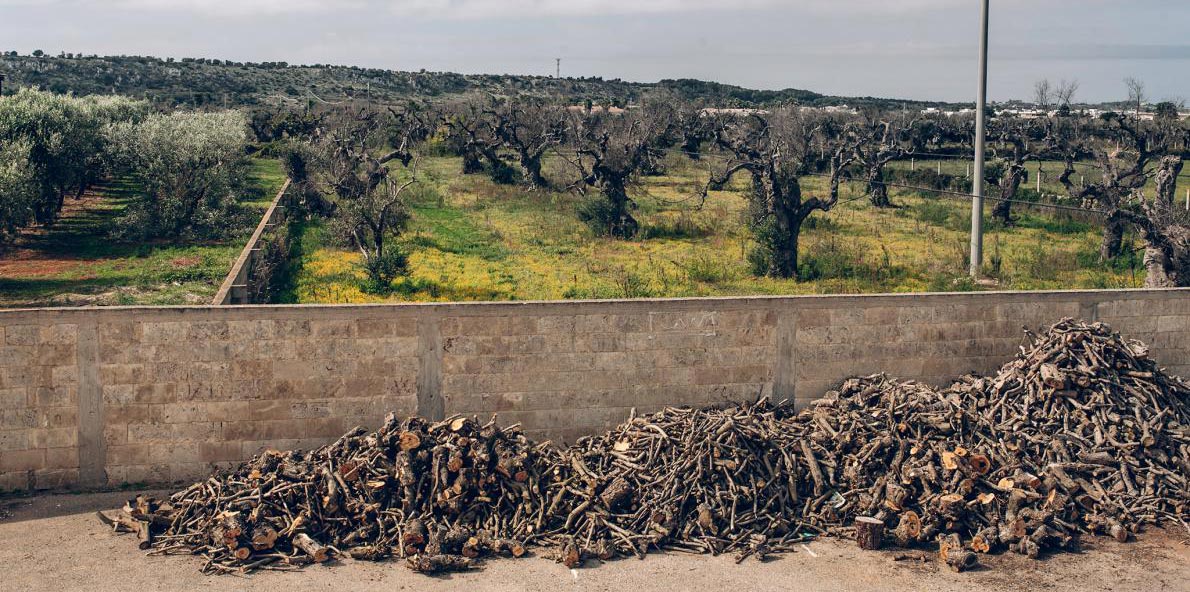Scientists Race to Save Italy’s Dying Olive Trees

In the heart of Puglia’s Salento region, where centuries-old olive groves have produced some of the world’s finest extra virgin olive oil, an invisible enemy threatens to erase a rich culinary heritage. Xylella fastidiosa, one of the most destructive plant pathogens on Earth, has taken root, drying out trees from within and leaving behind barren landscapes where verdant groves once flourished.
This relentless bacterium, infamous for devastating vineyards in California and Brazil, first appeared in Salento in 2013. Scientists scrambled to determine the cause as entire trees withered under its grip. What they found was alarming: Xylella is incurable. Once a tree is infected, it is doomed. The only way to stop the spread is to uproot and destroy affected trees—an unthinkable solution for many farmers whose groves have been passed down for generations.
A Disease with No Cure
Xylella fastidiosa is spread primarily by spittlebugs, tiny insects that feed on the water-conducting xylem of plants. As they migrate from tree to tree, they carry the bacteria with them, infecting new hosts in their wake. Half of Salento has already been declared contaminated, and without decisive action, the disease will continue its relentless march northward. Farmers, desperate to slow the spread, have experimented with homegrown remedies, but no proven treatment exists. If left unchecked, Xylella could wipe out Italy’s olive oil industry as we know it.
A Looming Threat to Global Olive Oil Production
Italy and Spain lead the world in extra virgin olive oil production. If Xylella is not contained, its reach could extend beyond Italy to Spain, France, and Greece—threatening the global supply of EVOO. Alarmed by the potential consequences, some countries have banned imports from Puglia to prevent accidental transmission. While today the crisis is concentrated in one corner of Italy, the future of the industry teeters on the edge of disaster.
A Glimmer of Hope: Resistant Cultivars
In the midst of this crisis, scientists and farmers are searching for a solution. Their best bet? Identifying olive cultivars resistant to Xylella and replanting devastated groves with these resilient trees. So far, only two varieties have shown promise, but adopting them means an unavoidable shift in tradition. Some farmers who have cultivated the same olives for generations now face an impossible choice: embrace change or risk losing everything.
The Future of Italian EVOO Hangs in the Balance
The world relies on Italy for high-quality extra virgin olive oil, and the loss of Salento’s groves would send shockwaves through the culinary world. As the debate rages on about how to halt the disease, one thing is clear—if Xylella is not eradicated, some of the most beloved EVOO brands may vanish from store shelves. The painful reality is that in order to save Italy’s olive oil industry, infected trees must be sacrificed, and new, resistant cultivars must take their place.
The fight against Xylella is far from over, and the choices made today will determine the future of Italy’s most prized agricultural treasure. To make matters worse, the situation is exacerbated by climate change. Rising temperatures and altered weather patterns have intensified the spread of Xylella fastidiosa, as the bacterium thrives in warmer conditions. This not only accelerates the disease's progression but also expands its reach to previously unaffected areas. For a deeper look at the battle unfolding in Salento, explore these reports:
- Italy's Farmers Turn to Cow Dung to Save Beloved Olive Trees
- Where the Olive Trees Are Dying: A Front-Line Report on Xylella
The fate of Italian extra virgin olive oil hangs in the balance. The question is—will we act in time to save it? Check out National Geographic’s full article on the subject: Inside the Race to Save Italy’s Olive Trees.



